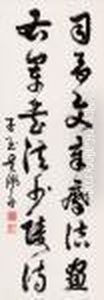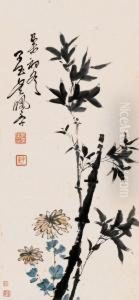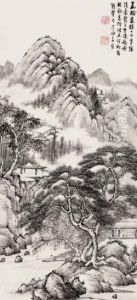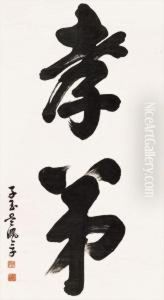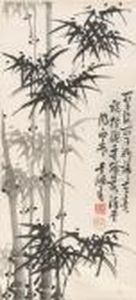Wu Peifu Paintings
Wu Peifu was not an artist in the conventional sense of painters or sculptors, but his life's canvas was the military and political landscape of early 20th century China. Born in 1874 in Penglai, Shandong, China, Wu Peifu rose to prominence not through the arts but as a key figure in China's warlord era, a time marked by fragmentation, shifting allegiances, and a quest for consolidation of power among military leaders following the fall of the Qing Dynasty in 1912.
Wu Peifu's early life was characterized by rigorous education and a strong inclination towards military strategy. This foundation propelled him into the ranks of the Beiyang Army, the most powerful military force in China at the time, where he quickly distinguished himself as a capable and strategic leader. His intelligence, coupled with a reputation for living modestly and treating his troops well, earned him widespread respect and loyalty, which were crucial in the tumultuous years that followed.
During the 1920s, Wu Peifu became one of the most influential warlords in China, controlling the central regions of the country. He was known as the 'Jade Marshal' for his integrity and reluctance to engage in the opium trade, a common practice among other warlords for financing their military campaigns. Wu's power peaked during the Zhili-Anhui War (1920) and the First Zhili-Fengtian War (1922), after which he was recognized as one of the leading figures in the Zhili clique, which sought to unify China under a central government while maintaining their regional autonomy.
However, Wu Peifu's prominence was not without challenges. His attempts to unify China and his opposition to imperialism and the growing influence of Japan made him a target. His fortunes declined after the Second Zhili-Fengtian War in 1924, leading to his eventual defeat by the Northern Expedition led by the Nationalist Government (Kuomintang) under Chiang Kai-shek in 1928. Following this, Wu's influence waned significantly, and he retreated from public life.
Wu Peifu's later years were marked by a withdrawal from the political and military arenas. He spent his final days in relative obscurity, passing away in 1939. His legacy is a complex tapestry, reflective of a period in Chinese history filled with turbulence and change. Wu is remembered not only for his military and political endeavors but also for his contributions to the idea of a unified, independent China, free from foreign domination and internal division.
